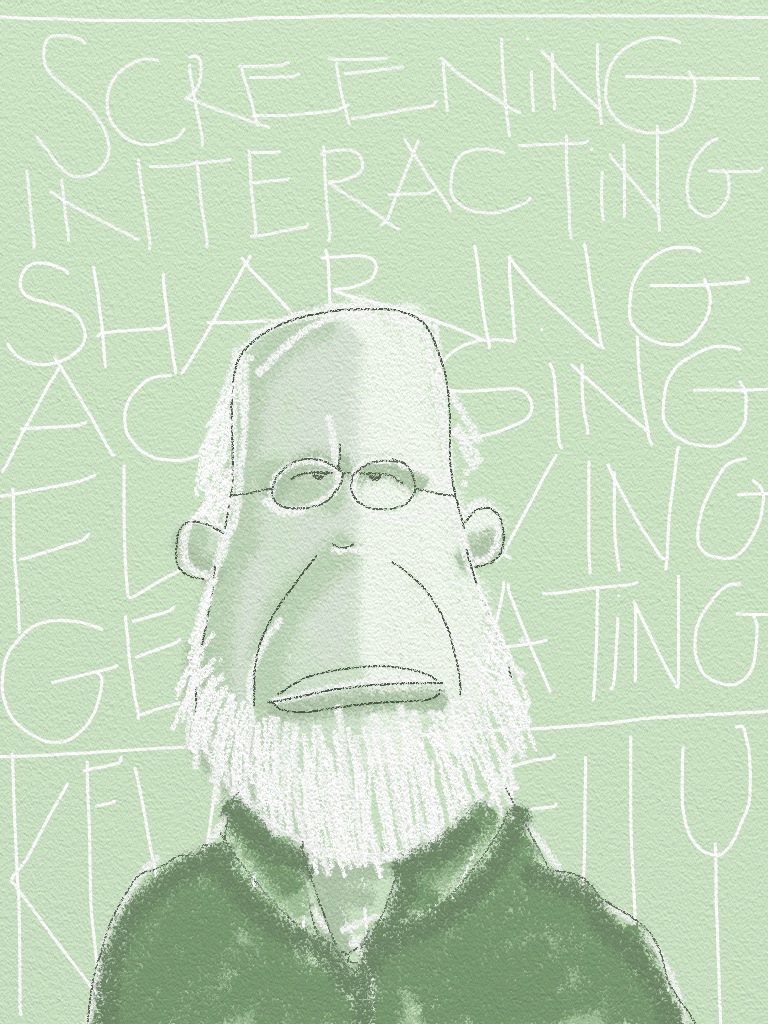Kevin Kelly is Senior Maverick at Wired magazine. He co-founded Wired in 1993, and served as its Executive Editor from its inception until 1999. He is the author of several books, including What Technology Wants, New Rules for the New Economy, Out of Control, and most recently Cool Tools: A Catalog of Possibilities, released in December.
Q: You just published the book Cool Tools, A Catalog of Possibilities in December. What was your inspiration behind that project?
A: As you mentioned, I used to work for the Whole Earth Catalog. That’s what we were doing there. We were reviewing tools. And we had access to tools. As I said, the catalogs were user-generated reviews, with amateur enthusiasts writing in. If you read the old catalogs, you will recognize their voice because they were bloggers. They were blogging on newsprint, user generated bloggers on newsprint, and we were the hub, the server. We were basically doing the web on newsprint. When the web came, the real web, the electronic web, it killed the catalog. There was no need because the web was doing 95% of what the whole earth catalog was doing and it did it better. But there was 5% that the web didn’t do, and I was interested in that 5%.
That 5% was the amazing experience that you would get by opening up this very large format book, about the size of a small towel, and it would sit on your lap and you could fall into it. There was something about unconscious associations that you would do in your brain as you looked at this large real estate and make these connections between tools that did not seem to be related. There was a buzz, there was an energy, a vibration that you would get when you looked at these old catalogs. Most of the information was completely out-of-date but still, they would have this kick in them.
I would study them at night over the years, trying to capture that, and I decided to take the online version of the catalog, which I kept going as cool tools, and give it this 5% that the web was not doing and give it back as a paper experience, this time in color and with QR codes, a little hint of the web, to see if that worked, to see if that magic worked for anybody else. I think it does work.
My hope and my aim is really not for the gray beards that remember the whole earth catalog but for another generation, my kids and below, teenagers today who I feel should experience what I experienced with the catalog, which is the idea of, ‘oh my gosh, all these things are possible. I can do all this stuff, if I want to. What I can do here are things I never thought about. I didn’t know that you could do this by yourself, I didn’t know you could make your own maple syrup, I didn’t know you could make your own whisky, I didn’t know you could build your own house, I didn’t know you could hire a designer in India really easily.’ These are possibilities. You don’t need to buy any of them, you just need to know they exist, and they are there if you need them, and they may inspire you to do something that has never been done before.
Q: What are some of the coolest tools?
A: I define tool in the broadest possible strokes, from a hand tool to a machine tool to a calendar to a web app to a service. Looking at the education space, there are some really cool flashcard apps, like Anki, SuperMemo, that are superior to other things in terms of learning a set of something. Quizlet is another one that high schoolers around here use. Those are cool tools. Those are things that, if you’re studying, you should know about.
So, Cool Tools are all my favorite things, things that I am actually looking at right now, like this really cool microscope on my desk, a block microscope. It only has one moving part. It’s very rugged. I know people that have sailboats, and when they go out to sea, they have one of these on board because it’s indestructible. So this is an example. An indestructible, basic microscope. Very, very rugged. Very versatile. If you have kids and are looking at stuff, you should have a really good microscope, and this is the one to get.
That’s the kind of thing that the website and the book include. My desk is littered with some of these things. Like the Snark tuner. If you play guitar or ukulele or any kind of string instrument, this is a little tiny tuner that just clips on to the neck of the stringed instrument. It is very accurate and it helps you to tune an instrument very methodically and precisely and it is very inexpensive. That’s a cool tool.

